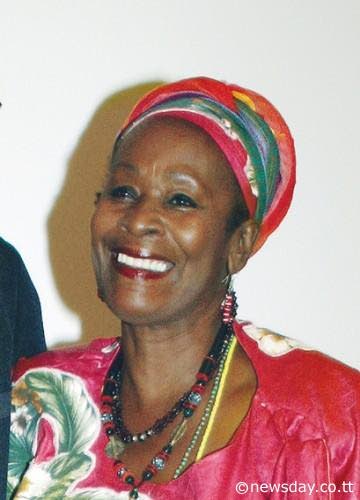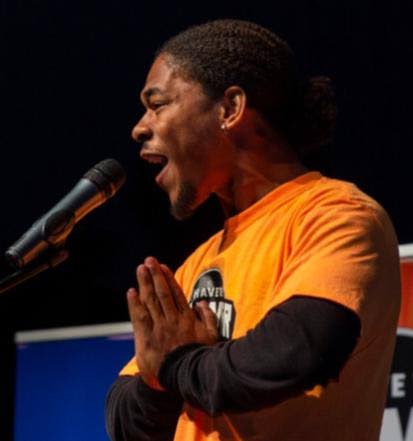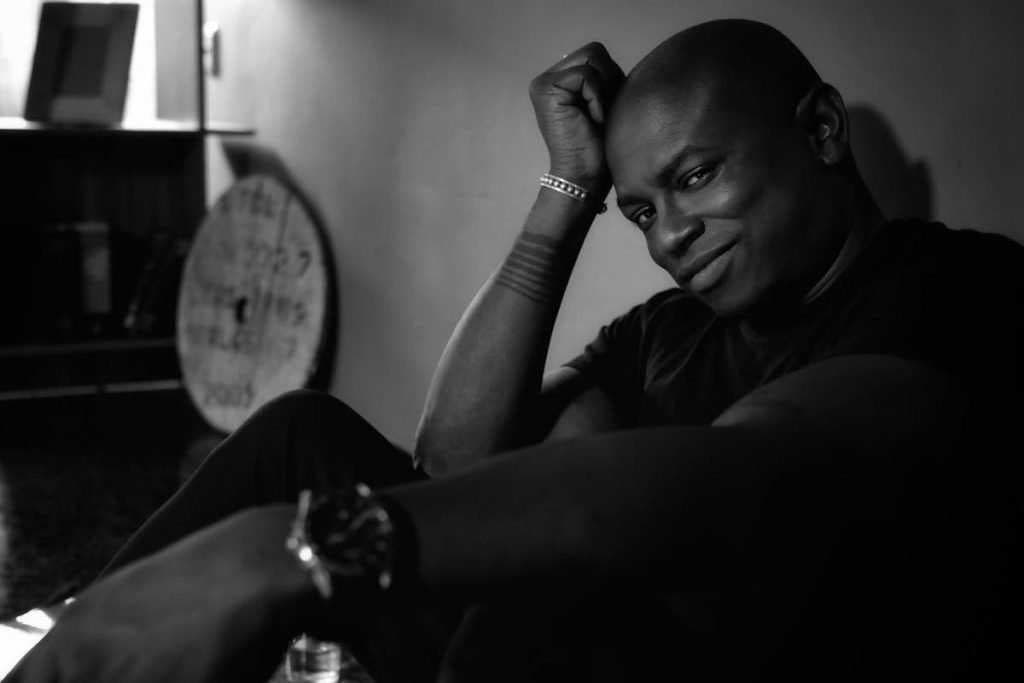Ending slavery’s legacy of racism

How can a people end slavery’s legacy of racism? For poet Pearl Eintou Springer it starts with changes in the education and religious systems.
Springer, Dr Kevin Adonis Browne and Abdul Majeed Abdal Karim shared their thoughts and poetry on this at the Organisation of American States (OAS) and the Emancipation Support Committee’s event to mark Inter-American Week for People of African Descent 2021 on March 24.
The event cut across generational lines, giving the perspectives of youth, the elders and the in-between generation through its panellists.
The event’s theme was Ending Slavery’s Legacy: The imperative for strengthening justice and resilience in African Descendant Communities in the Americas in the face of covid19.
It began at 6 pm via Zoom, with young poet Karim reading his piece Proof of Existence. Springer read Tillah’s Lullaby and Survivor and Browne did No Words.
Host Atillah Springer asked each poet what the pandemic year had been like for them and their thoughts on movements like Black Lives Matter.

For Karim, as a Muslim, solitude and isolation are a sacred thing. It gave him, he said, the chance to run into a number of different selves like his evolved self. It also gave him the chance to have conversations with his past selves whether it was his ethnicity, religion or his personality.
It was only a matter of time, Karim said about the rise of global movements like Black Lives Matter. But for him they did not do enough.
“The fire die down too quick. We had a lot of allies and that sort of thing from the white community and different communities, but it was just to show face and not to get swallowed up in the stampede of justice…”
Karim said the main issues actually affecting black and African-descended people, physically and generationally, were not being addressed.
And for TT there is a lot that it still has to overcome on the surface as well as on the inside, he said.
“Colourism and racism is not a rare or unheard-of or uncommon thing in TT. It is not just white versus black where racism is concerned.”
He said there was racism among TT’s close-knitted races such as East Indian, those of African descent and Chinese.
“We still have streets named after our oppressors. We still have places honouring our oppressors. We still have a whole park honouring an oppressor.”
He asked how it was that those in authority did not see that they hold the power to initiate change,

Muslim solitude and isolation are a sacred thing. -
“We could actually, physically change the name of a street. We could actually, physically allocate or delegate something in the name of somebody that is important to us as African descendants and Africans.”
Springer singled out the education and religious systems after a participant posed a question about the role of institutions like universities in the quest for change.
“Nothing is going to change until the colonial set-up and education system to create a certain kind of colonial person with a certain kind of colonised mind is changed,” she said.
She said TT has not decided the kind of person it wanted to create.
“We are still creating a colonised mind. So in a lot of ways we do not have excellence in standards and we do not have people who are rooted in their own being.”
She asked why TT could not use its creations like calypsoes and other cultural assets to assist its people with knowing themselves.
She added that TT also had to look at the institution of the established churches, which perpetuated institutionalised patriarchy.
“And are at the heart of the violence towards women, more and more and more. I know it might not be a popular thing, but let us look at it…I think that we need to look at that institution of the church and the terrible role established religions have played in our enslavement and the disem-powerment of our women.”
Recalling the 1970 Black Power movement and other local movements, Springer said TT fought in the past and people had stood up against institutions. But the conversation now needed to be about revolutionising institutions or creating new ones, she said.
And all it needed was a person.
“One person can be a revolution. It starts with one person and one idea.”
For Springer, when she
compared the events of the past with the movements of today, there was a lot of irony.
She said wearing masks had once been banned by the Government and it was “supremely ironic” for her that: “We have to wear masks as a way of saving ourselves from the terrible, terrible sickness called covid.”
Springer said the African had gone through so much that dealing with the covid19 pandemic was “nothing new.”
“We are not afraid of solitude, because it is a time of knowing self. It is scary too, because sometimes it is a scary thing to try to know yourself when you don’t have the tools, the ancestral memory to unearth in your genes.”
“It is there, you know, but how do you unearth it? And I think this is what Kevin was talking about.”

Springer said her work was about being the catalyst to unearth the unknowing to bring about knowing.
Recounting her work in movements like the Black Panthers, Black Power and Tapia, Springer said it has been continuous and unending, but her joy was seeing the minds of the younger ones “open up” and “see new things and dream new dreams.”
Browne said to be in the middle space, not being elder nor youth, was where TT was as a people and a country. He added that it needed that kind of vigilance.
Based on a question asked by a participant, Browne said all institutions are dangerous and aim to maintain their status quo.
He said an individual was not a possession of the institution and how one maintained their sensibility and identity was key to how one navigated the institution over time.
“The institution precedes you in so many ways and runs so deep that your goal is not necessarily to burn the institution down or to dismantle it or undo its imperatives. Your goal is to recognise what the imperatives of the institution are and to figure out strategies that enable you to navigate it, in a way that you can survive, thrive and end up sharing that knowledge.”
He told the participant that he was not alone and that all institutions were complicit in silencing voices that go against their agenda and imperatives. He said people recognised that and one had to move to suit in order to position themselves accordingly to do the kind of work they really want to do.
He said it was a risk but one worth taking, since it showed that one was not a possession of an institution.


Comments
"Ending slavery’s legacy of racism"